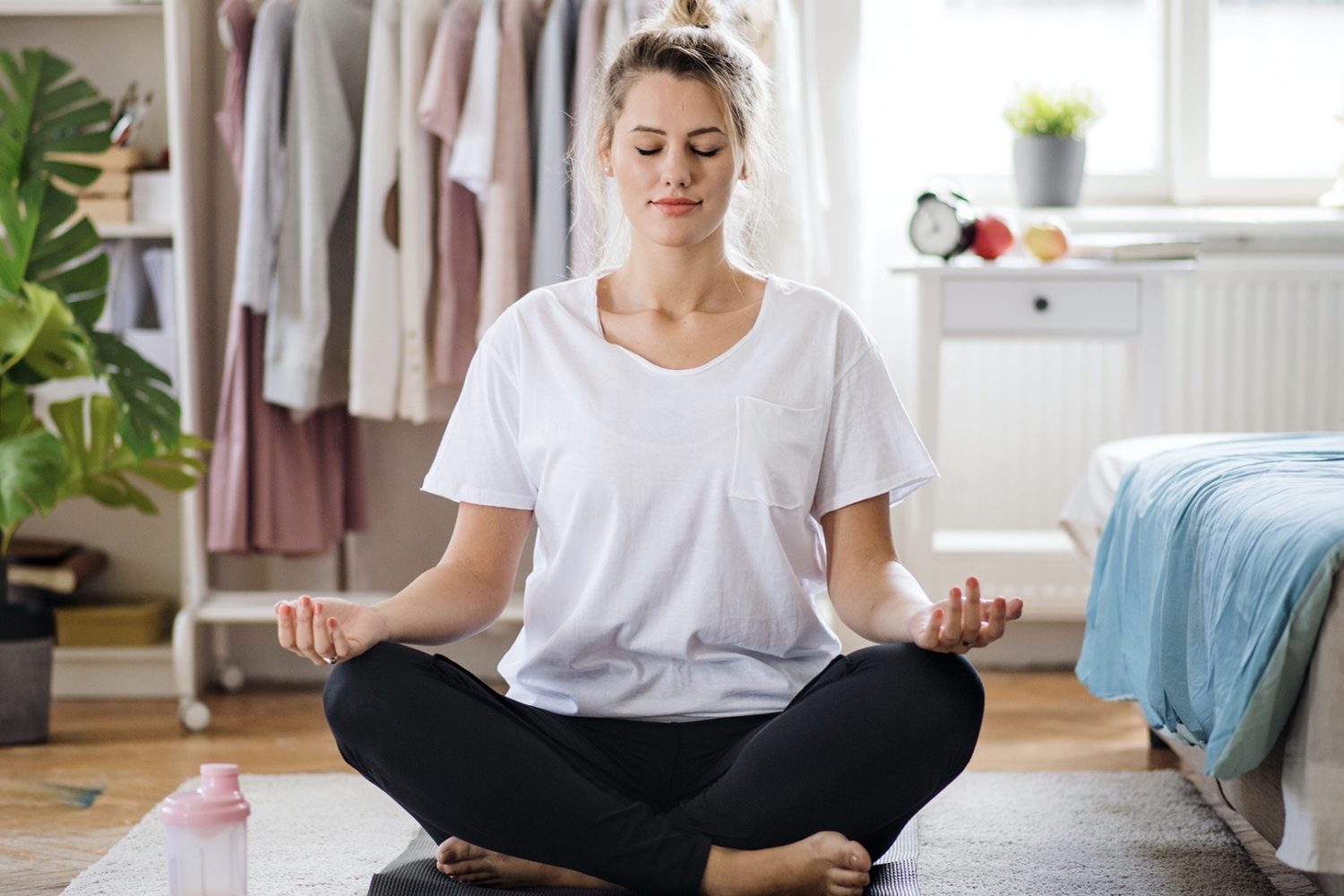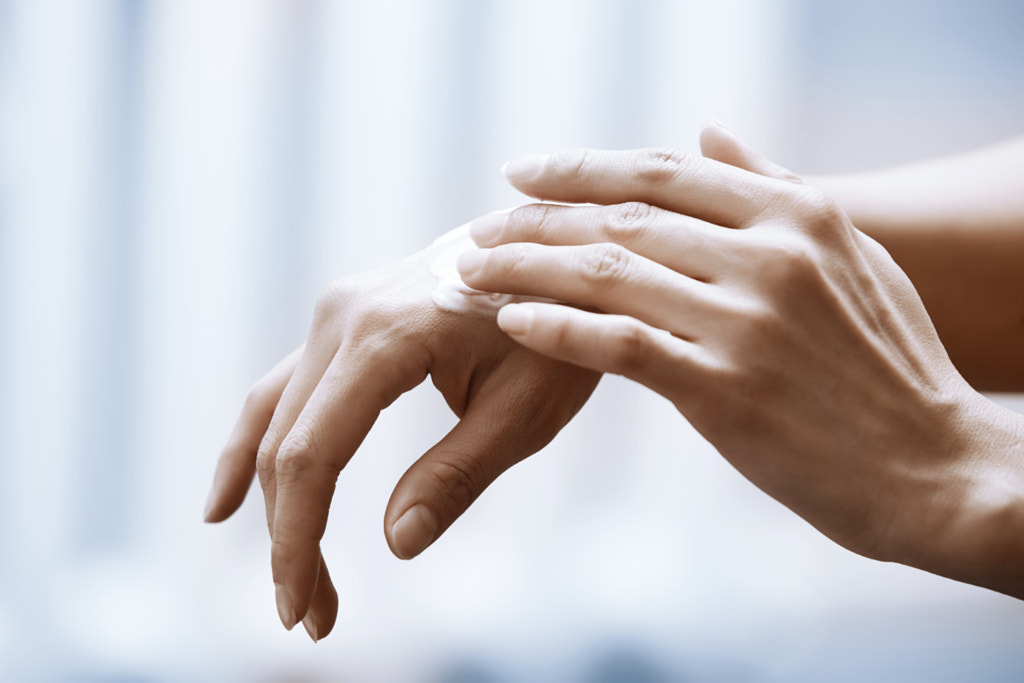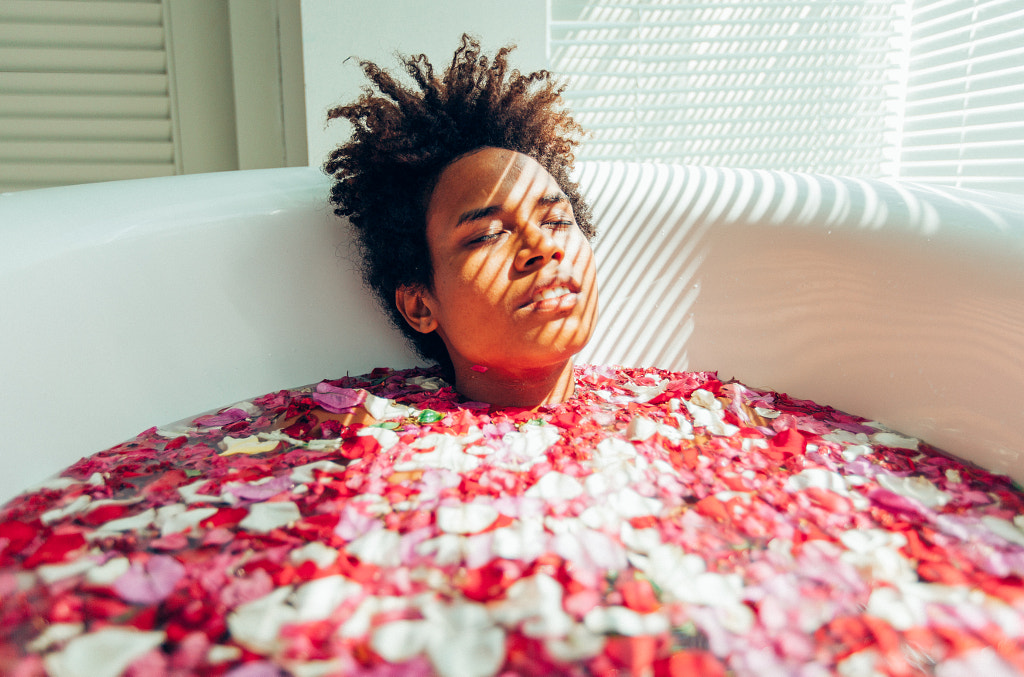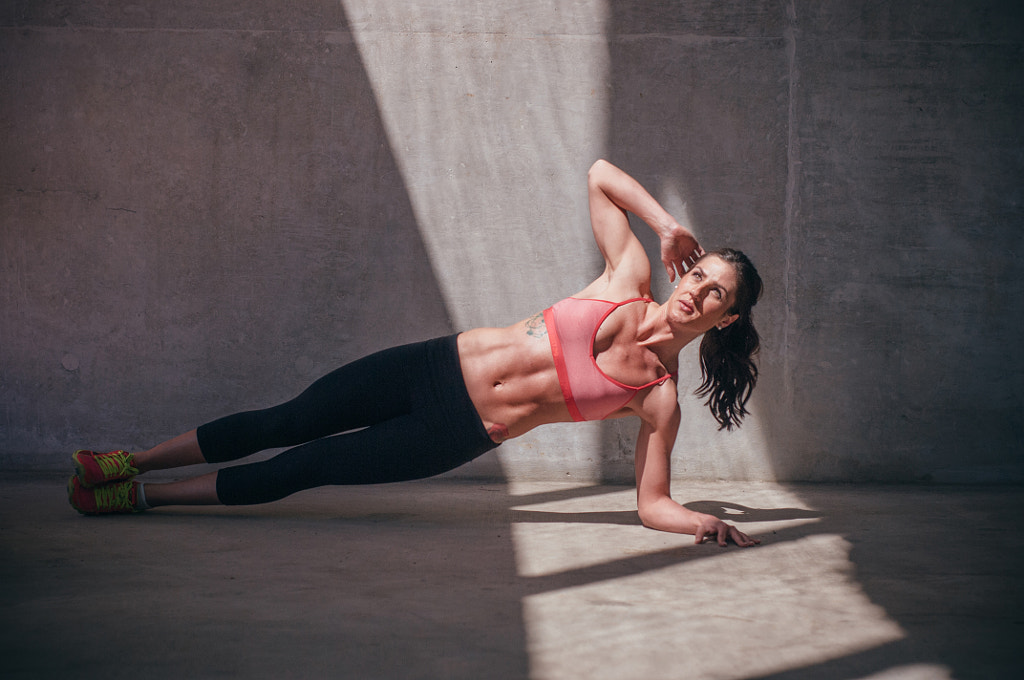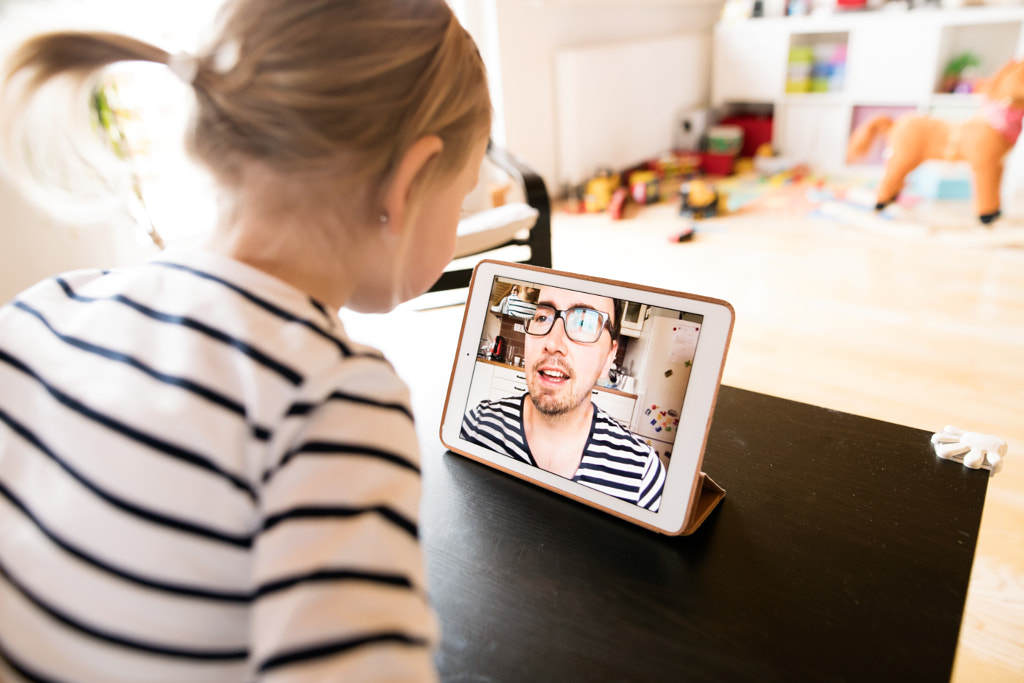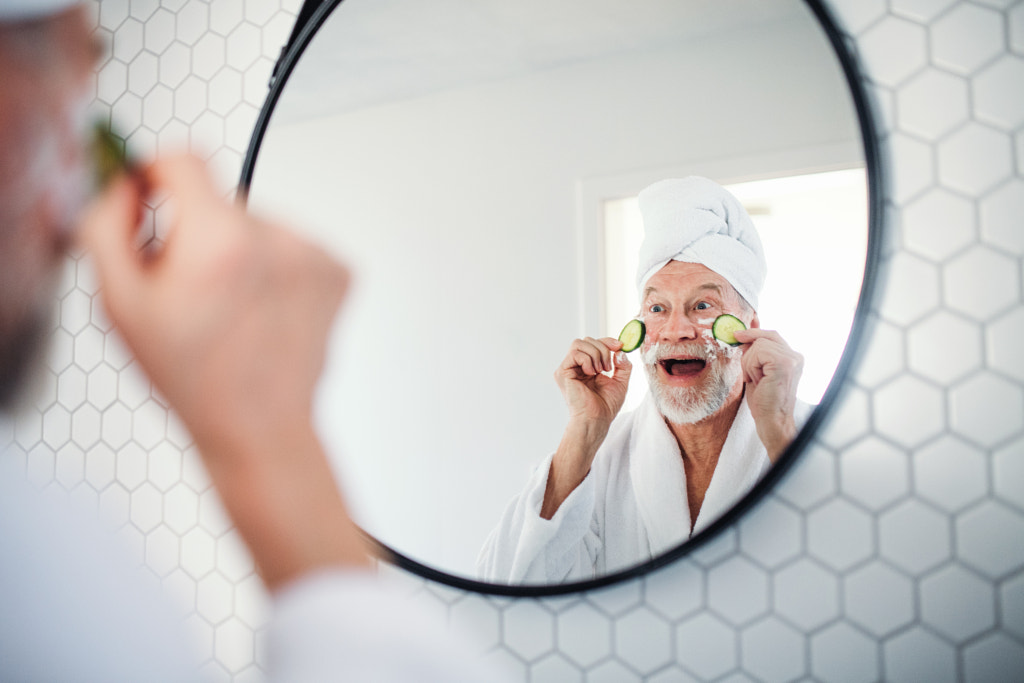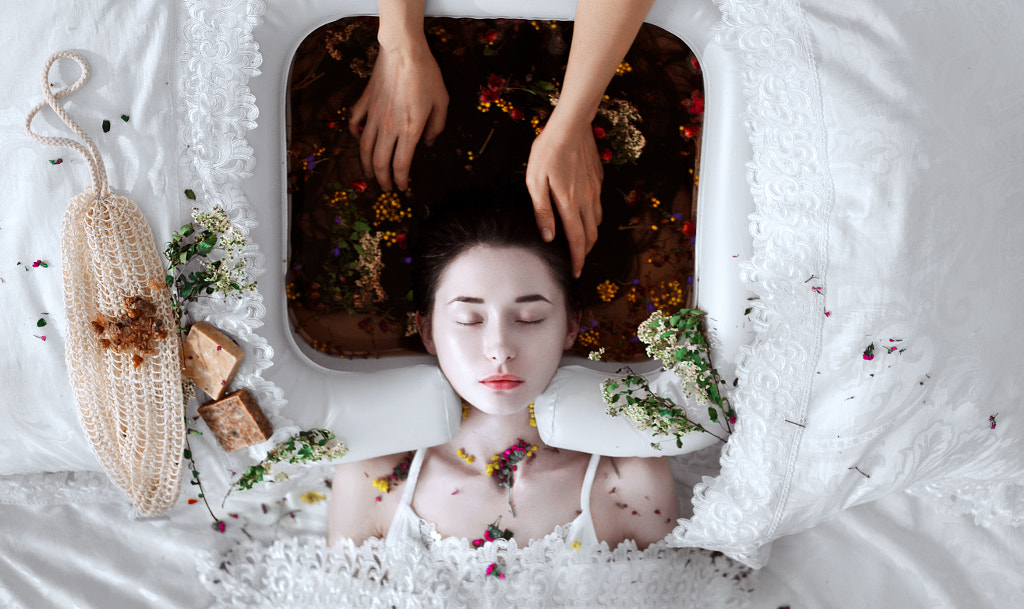At the start of this year, Getty Images named “wellness” as one of the defining forces shaping visual culture. The wellness movement spans our physical, mental, spiritual, and emotional health, and it also speaks to fostering healthy relationships with others. It’s about taking time for ourselves and also making time to reconnect with those around us.
According to market research from Getty Images, 91% of people agree that it’s important to talk about mental health; 90% say they try to take care of themselves emotionally, and 88% say they try to take care of themselves physically. In 2018, the wellness economy was valued at $4.2 trillion. That same year, the top-selling photo of women on Getty Images was a picture of senior women enjoying a yoga class together.
Amid the disruption of the coronavirus pandemic, the wellness movement has taken on new layers of significance. Several professionals recommend introducing a ten- to fifteen-minute self-care ritual into our morning routines, along with ten minutes of stretching, yoga, or breathing. Harpreet Gujral, program director of integrative medicine at Johns Hopkins’ Sibley Memorial Hospital, suggests mindfulness exercises; for example, we can take time for gratitude and reflection every time we wash our hands.
For photographers, wellness shoots provide the chance to create the kind of uplifting, commercially appealing images brands crave right now. There isn’t just one type of self-care; it’s unique to everyone, so there are endless possibilities for photographers to explore. Here are our tips for tapping into this ever-evolving niche and incorporating some at-home wellness shoots into your Licensing portfolio.
Contents
Make it timely
These days, people are adapting their wellness routines to suit our changing circumstances. For some, that means taking up a new hobby like baking, and for others, it means starting a gratitude journal. Many of us are also washing out hands more and using moisturizers to soothe dry skin; something as simple as that can be a form of self-care.
It always helps to do some research on emerging wellness movements when planning your shoots. In recent years, for instance, self-care apps like Calm, 10% Happier, Headspace, and Shine have made meditation accessible to everyone, while fitness apps have also sparked renewed interest in yoga.
According to the 2020 Topics and Trends Report from Facebook IQ, baths as self-care rituals are on the rise in the United States, as consumers experiment with sea salt soaks and DIY recipes; simple skincare routines are trending in the Philippines, and gut health is trending in Australia.
All of these topics can be illustrated at home using items you have sitting around your kitchen and bathroom. When doing your research, don’t forget to take some notes on any trending keywords or phrases you notice (e.g., “well-being,” “stress relief,” “skincare,” etc.), as you’ll want to add them to your metadata when submitting your final images.
Tap into new fitness trends
In mid-March, gyms across New York, Connecticut, and New Jersey were shut down indefinitely, with more states following soon after, but many of these gyms have adapted by moving their classes online. For some, that means virtual group classes with minimal equipment, and for others, it means one-on-one training via Skype. Several gyms have even offered these services for free.
Without access to gyms and fitness centers, people are getting creative and staying active indoors. Last month, in conversation with TIME, Amanda Brabec, a personal trainer and fitness instructor from Boston, suggested using everyday household items as part of your workout: wine bottles can become weights, dish towels can be sliders, and you can use a chair for step-ups.
Tap into this kind of resourcefulness and resilience in your photography, and don’t be afraid to think outside the box. You might set up a shoot with a trainer via video chat (ask them to sign a model release), or maybe you work with what you have at home and document your personal fitness routine.
Highlight virtual connections
The United Nations recommends combatting anxiety during this time by staying in regular, virtual contact with friends and family, and the CDC has similar advice regarding phone calls and video chats. We’ve already spoken about the role of technology in the form of meditation and mindfulness apps, but it can also be used to showcase connections and relationships during this time.
Connection in the age of COVID-19 can take on many forms; it can be a video chat or Facetime with friends and family, a virtual classroom or learning space, or even live-streamed music. In big cities, DJs and nightclubs are hosting sets from their rooms, providing a virtual club-going experience to thousands of people in isolation. Similarly, party promoters have organized dance parties on Zoom.
In the early days of the pandemic, people in China created a WeChat dating group for those looking for love in lockdown. Women in Wuhan organized karaoke groups, and in Iran, doctors and nurses have kept their spirits up by participating in dance challenges and posting them online.
Staying at home is isolating and tedious, and it can foster a sense of anxiety, but connection is a fundamental part of being human, and people are coming up with ingenious ways to build community. You might not be able to organize an in-person photoshoot with models and friends, but these are all important themes to explore while organizing shoots from home.
Make it personal
As the Getty Images Creative Insights team put it, wellness isn’t something that can be “faked” in photography. Today’s brands want to build trust with their customers by staying real and authentic, and that’s especially important these days. Start with your own self-care routine, and photograph yourself, your roommate, or family members participating in activities you enjoy.
There’s no wellness activity too small or simple to be photographed, whether it’s your weekly ritual of applying a face mask or practicing meditation and breathing. These activities might seem commonplace to you, but they are exactly the kinds of relatable images that resonate with buyers.
Run some searches on 500px and Getty Images to see what kinds of wellness photos end up at the top of your results; chances are, they explore a unique subject or a familiar subject from an unexpected or innovative angle. Browse the social media feeds of wellness influencers to track new trends.
This preliminary research will help point you to what brands are actively buying and looking for when putting their campaigns together. When collecting visual inspiration, remember to create a mood board for future shoots, compose a shot list, and then enlist the (virtual) help of friends and family to bring your ideas to life.
Not on 500px yet? Sign up here to explore more impactful photography.
